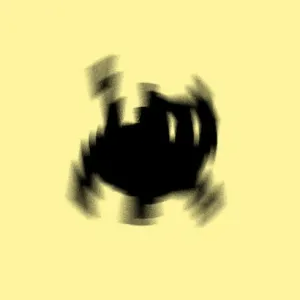discover的近义词常用短语
discover有不见,消失; 不复存在等意思,那你知道discover的 近义词 都有哪些吗?discover有哪些常用 短语 ?下面我为大家带来discover的近义词辨析及discover的常用短语,供大家参考学习! discover近义词: discover, find, detect, ascertain discover近义词辨析: 这些动词均有"发现"之意。 discover 普通用词,指发现本来存在,但示被认识的事物、真理或情况。 find 普通用词,可指偶然发现,也可指经过寻找后得到或重新获得已失去的东西。强调动作的结果。 detect 正式用词,强调经过周密观察或研究而有所获得和发现,尤指发现有意隐藏之物。 ascertain 较正式用词,指有意搜寻与发现。 discover的常用短语: DISCOVER YOURSELF 发现自己 Discover Nature 自然探索 DISCOVER CHANNEL 探索频道 discover的英语例句: 1. The turning point in the process of growing up is when you discover the core of strength within you that survives all hurt. 当你从内心深处找到一种可以忍受一切痛苦的坚强力量时,你的成长历程就会出现飞跃。 2. Discover the delights and luxury of a private yacht. 体验私人游艇的乐趣和奢华。 3. He was stunned to discover cost overruns of at least $1 billion. 他震惊地发现花费至少超了10亿美元。 4. We happened to discover we had a friend in common. 我们凑巧发现我们有一个共同的朋友。 5. The newly discover-ed notes are nothing more than Lang"s personal journal. 新发现的笔记只不过是朗的个人日志。 6. It was difficult for the inspectors to discover which documents were important. 检查员们很难发现哪些文件是重要的。 7. It is upsetting to discover that you have backed a loser. 发现自己的投注对象输了是一件让人心烦的事。 8. Haskell did not live to discover the deception. 哈斯克尔至死都没识破那个骗局。 9. We may begin to discover overlaps. 我们可能开始发现交叉的部分了。 10. We have to discover his plans and act accordingly. 我们得找出他的计划,照着办。 11. The police are trying to discover the identity of the killer. 警方正努力调查杀人凶手的身份。 12. An inquest was held to discover the cause of death. 对死亡原因进行了调查。 13. It was a shock to discover the truth about his sordid past. 他以往的丑行被发现时,人们感到震惊。 14. He was pleasantly surprised to discover that he was no longer afraid. 让他惊喜的是他发现自己不再害怕了. 15. They discover that the new teacher is a martinet. 他们发现新来的老师非常严格. discover的近义相关 文章 : 1. disappear的同义词辨析 2. discuss的同义词辨析 瑞瑞爱吃桃2023-08-07 09:11:171
瑞瑞爱吃桃2023-08-07 09:11:171
It is easy to Say hard to do。这是什麼意思?
应该是说的,说的简单,做的费劲 gitcloud2023-08-07 09:11:137
gitcloud2023-08-07 09:11:137
“The Beijing Zoo is very big”这个句型行吗?
句型没有什么问题,不过the是多余的. 英语中表示“...公园/动物园”的专有名词,其前是不加定冠词the的. Beijing Zoo is very big. 北京动物园很大. 真颛2023-08-07 09:11:081
真颛2023-08-07 09:11:081
the zoo is big特殊疑问句
is.the zoo big 此后故乡只2023-08-07 09:11:071
此后故乡只2023-08-07 09:11:071
the new zoo is 什么 big
veryquite 豆豆staR2023-08-07 09:11:073
豆豆staR2023-08-07 09:11:073
Bear is big animals in the zoo.什么意思?哪错了?
1、用bears2、用are 西柚不是西游2023-08-07 09:11:062
西柚不是西游2023-08-07 09:11:062
Dr,Mr,Miss,Mrs,Ms.分别是什么意思
Dr.是Doctor的缩写,意思是博士或医生,例如:Dr.Lee 李博士或李医生Mr.是mister的缩写,意思是先生,例如:Mr.Smith史密斯先生Miss是指未婚的女生,例如:Miss Sherry雪莉小姐Mrs是mistress的缩写,意思是指已婚女士,如:Mrs.Lee李女士Ms也是miss的缩写,但这种形式可在你不确定对方是否已婚的情况下使用。 mlhxueli
2023-08-07 09:11:065
mlhxueli
2023-08-07 09:11:065
Is the zoo big?怎么回答
Yes,it is .No ,it is not . 小菜G的建站之路2023-08-07 09:11:042
小菜G的建站之路2023-08-07 09:11:042
How big zoo it is 为什么不对?how+形容词+
how big a zoo it is? 铁血嘟嘟2023-08-07 09:11:013
铁血嘟嘟2023-08-07 09:11:013
what a big zoo!同义句转换 the zoo is!
what a big zoo!同义句是(How big) the zoo is! LuckySXyd2023-08-07 09:11:011
LuckySXyd2023-08-07 09:11:011
In our town, there is a big zoo with a lot of animals in it. There are so beautiful tigers and ...
小题1:C小题1:B小题1:A小题1:C小题1:C 小题1:根据Elephants like bananas best 可知选C.小题1:根据there is a big zoo 可知这个动物园很大,故选B.所给答案有误.小题1:根据he monkeys are very funny. They climb up ropes and jump down again and play with each other like small children.描述,可知选A.小题1:根据They stand on their hind legs, hold up their four legs and ask for food.描述,可知选C.小题1:根据there are also brown bears, black bears and white bears.描述,可知有三种颜色的熊.故选C. 肖振2023-08-07 09:11:011
肖振2023-08-07 09:11:011
根据短文内容,选择正确答案In our city, there is a big zoo. There are a lot of different animals in
小题1:B小题2:C小题3:D小题4:D小题5:C 小题1:根据文章内容There are some scary(吓人的) tigers and lions. They like eating meat and they eat much meat every day.可知答案为B小题2:根据文章内容There are also two big elephants and a baby(幼崽) one.可知答案为C小题3:根据文章内容In the zoo, we can see different kinds of bears(熊): brown bears, black bears and white bears,可知答案为D小题4:根据文章内容They stand on their back legs and lift their front legs to ask for food They like cakes very much.可知答案为D小题5:根据文章内容大意可知答案为C。 瑞瑞爱吃桃2023-08-07 09:11:011
瑞瑞爱吃桃2023-08-07 09:11:011
soccer is dofficult for me 改为同义词
Soccer isn"t easy for me.It is difficult for me to play soccer.. 余辉2023-08-07 09:11:003
余辉2023-08-07 09:11:003
Dr,Mr,Miss,Mrs,Ms.分别是什么意思
分别是博士doctor,先生,小姐(多指未婚),太太(已婚),女士(不强调婚姻状况)望采纳O(∩_∩)O~ 韦斯特兰2023-08-07 09:10:578
韦斯特兰2023-08-07 09:10:578
then they went to the zoo.The zoo is so big为什么用is?
因为the zoo那个动物园是一个啊,所以be动词要用它的单数形式is啊! 此后故乡只2023-08-07 09:10:551
此后故乡只2023-08-07 09:10:551
“The Beijing Zoo is very big”这个句型行吗?
不行 余辉2023-08-07 09:10:544
余辉2023-08-07 09:10:544
whatabigzooitis为什么这样写
这是英语的感叹句,意思是“动物园真大呀” 真颛2023-08-07 09:10:502
真颛2023-08-07 09:10:502
Why is it possible for us to understand a sentence with multiple spelling errors?
【答案】:AC W ca rad missplld wrds bcaus w us "tp-dw" prcssig. W ca guss th wrd thrugh th shap ad lgth f th wrd. 康康map2023-08-07 09:10:491
康康map2023-08-07 09:10:491
what color is it?的英语说课稿
Points Teaching Materials Computer software, tape recorder, video, color card, a yellow sweater and a red one, a big umbrella and two small ones, two pieces of garment and two colorful candies Teaching Process Time Material Organizing the class Listen and sing a song: “Who is wearing yellow today?” Warm up and attract the pupils One minute Tape recorder Lead in the new class The teacher named three pupils dressed in yellow to introduce the word “ Yellow” To introduce the new words by songs Study of new text Study the words “green, black, purple”. according to the song and the garment the pupils wear The teacher uses “ Is u2026 wearing yellow/u2026 today?” The teacher sorts out the color cards to help the pupils to read the words Some pupils have known the words. Provide an opportunity of acknowledgment for all levels of pupils A visual method to help to pupils to remember the words 8-9 Practice the four words: yellow, green, black, purple, and study the new word color. Study brown, white, red, blue. (pupils teach each other) Mutual aid and cooperation among teachers and students Study the sentence pattern “I like the color” The teacher sorts out his/her favorite color and puts it on his/her dress to help the pupils to understand the meaning of “I like the color.” The pupils sort out the colors they like, saying “I like the color.” Emphasize the word “like” by body language The pupils overcome the difficulties by practicing Study the sentence pattern “What color is it?” and try to use the sentence pattern Read the words of color in the umbrella teamwork, divide the pupils into seven sections, the pupils put the words with the corresponding color cards. Practice the sentence pattern: “What color is it? Itu2019su2026” in the game Group game, practice the sentence pattern “What color is it? Itu2019s u2026” The whole class is divided into seven groups, the teacher provide the materials and let students to practice the sentences by feeling and touch.. Form the ability to grasp new word. Mutual aids and cooperation among pupils Connect the words with their meanings Active the pupilsu2019 interest. Teamwork and inter-group cooperation active the whole class. Study the text Watch the video twice The questions after the first time: 1. How many girls are there in the dialogue? 2.What are they talking about? Focus on the word sweater. -Is it a new sweater? To let the pupils understand the text in a real language context., and provide some practice to improve the listening, teach the new word: Yellow sweater -Yes. -This is Lucyu2019s sweater. -I have a new sweater, too. -What colour is my sweater? Guess! (take out the sweater) -Red. Itu2019s very nice. 3.What color is the sweater? Listen the tape twice. Focus on the key words: look at, open the book at page 37, read the text aloud. The pupils read by themselves. The second time guided by the teacher The third time all the class read aloud together sweater. Let the pupils to form a good habit by practicing. Practicing Practicing the text To read the text by role, give flowers of different colors to the pupils, practice five to six groups.. Practice the sentence pattern “What color is it? Itu2019s u2026”. Review the materials in the software, the pupils read after it.. The teacher gives three language contexts on the basis of which the pupils make dialoguesu3002 小菜G的建站之路2023-08-07 09:10:481
小菜G的建站之路2023-08-07 09:10:481
How to improve the ability of listening, speaking, reading
How to improve the ability of listening, speaking, reading and writing I. Introduction The purpose of middle school English teaching is to improve the students" four skills of listening, speaking, reading and writing, with the base of necessary phonetics, large vocabulary and good grammar, But this is not the final purpose. The final purpose is to lot let students be able to use the language. Why do we study English? If a man is only good at listening and speaking, can we say that he is good at English? No, If a man is only good at reading and writing, can we say that he is good at the language? No, If a student is good at English, he should be able to use the language, both in spoking and writing. Now most of the students do better in reading and writing English than in listening and speaking. They can read and write, but they can hardly communicate. They can hardly express themselves with their own words. This is partially because of our examination system, and partially of the teaching method . We are not able to change the examination system, but we can improve our teaching method. Most of all the teachers like to provide the students with a lot of knowledge-words, phrases, grammar, usages and so on, They are focusing these thing, especially on the grammar. Yes, the students do need these, but many teachers forget to teach them how to study English, and how to use it. So when you are giving the knowledge to the students, don"t forget to teach them all the abilities of the four skills. II. Ways on developing the four abilities 1.Listening The teachers often speak of the four skills- listening, speaking, reading and writing. That means each of them is important. You can"t say that you have mastered the language without any one of them, Listening, one of the means of language communication, is used most widely in people"s daily lives. About 45%of an adult"s time concerns listening to other people , listening to the radio, listening to the music. In linguistics ,giving the students a lot of listening activities is a good way of enlarging their vocabulary. On the other hand, it als o helps the students improve their listening comprehension. I have done an investigation. About 43.2% of the students think that the most bothering and most difficult is listening comprehension, and even some of them have difficulty in understanding their teacher who gives lessons in English. Without question, it is difficult of a middle school student to understand the listening material, if he hasn"t enough vocabulary and the ability of telling the grammar construction. In my investigation, about 35% of the students with low listening comprehension thing this is because they don"t understand or know the knowledge about linguistic, they are not able to tell the means of a what they have heard. In my another investigation, students were asked to listen to a dialogue of 244 words, in which the words and grammar have already been learned. ;But 80% of them thought it was too difficult. Then, using the same dialogue as a reading comprehension material, I found only 5% of them thought it was a little difficult, on the other hand the response ability is also another reason. It is clear that the reading speed of a material also affects. About 43% of the students thought that the material was read too fast and they couldn"t follow. A lot of students have their own listening habits. Some students often tries to understand each word or each sentence. They will think hard when they meet some difficult words or sentences, and a great many students could understand the material directly, They often translate the English into Chinese in their heart, thinking that only in this way can the sentence be understood. This is also a reason, trying to understand each word is difficult, and it is not necessary at all. You should catch the most important points. Then how to improve the students" listening skill? We know the largest difference between mother language learning and foreign language learning is the environment. A child can soon learn his mother language well. He has heard a lot before he can say something and walk. Then after he is able to walk and say, he has a chance of listening to more. Before he goes to school, he has already been a good listener and speaker. But for a foreign language, you can meet it only in formal places, classes, for example, otherwise, you can hardly have a chance to meet it. So I think you should try to let the students be in a language environment. Let the students grasp the phonetic symbol. I think the phonetic symbol is the base. A good intonation and phonetic depends on the base. Oral reading after a radio or a teacher is a good way at the beginning, Students should do much about it. Pay attention to the oral reading skill, It includes stress, strong form, weak form, intonation incomplete plosive consonant, affricate consonant, syllable and so on. Training and practicing the oral reading is not a day"s word. The teacher must give correct information about it . There is no easy way. Enlarge the students" knowledge about English. Encourage the students to read something in their spare time about geography, history, culture, stories and so on. For example, there are two materials of the same difficulty. One explains something about China"s Spring Festival, the other is about Thanks giving Day of the western countries. The former is easy to understand but the latter is more difficult. Why? It is clearly because the students know little about the latter. Both listening test and listening practice are necessary, but practice is more important. You can understand your students through listening tests. Only through the practice can the students improve their listening comprehension. 2.Speaking Speaking can"t be taught separately. It is often connected with listening. So we often speak of listening and speaking. The traditional way of listening and speaking is aural-oral method. Now, the new method of two-way communication is very popular. As you know that any teaching method has its psychological base. The aural-oral method began in the 1940"s. It is based on behaviourism. One of its psychological theory is that learning a language is forming a set of new language habit. This is its usual process: Stimulus-Response-Reinforcement. The aural-oral method is fit for the teaching of beginning stage. It focuses on the practice of oral English drills. But too many drills are being practiced without any context or given conditions. So what is learned is isolated clauses. And it has few communicative functions . The two-way communication makes up for the defect in communicative ability in the traditional teaching. Two-way means the relationship of the communication between the teacher and the students. This relationship is connected with the communicative activities between two people. This method is different from the traditional aural-oral method. But it also bases on the process of S-R-R. So we call it a mew type of aural-oral method has some peculiarities. It can create a fresh environment for speaking English. It needs some necessary explanations of Grammar, including some sentence structures. Hints are the major way of practice. Teachers can control the practice wholly or partly. The practice can also be controled by students freely. The internal force of study is not due to the insterests in phonetic structure, but the content of the material. To make the correct response, the students are asked to pay more attention. Example: Teacher: Ask me if I am a student. Student: Are you a student? T: Tell me-No, You"re a teacher. S: No, I"m a teacher. In this example, "Ask me" means that the student must say a question sentence while "Tell me" shows that the student must say a decarative sentence. But before doing this, the teacher must explain something about the exchange of interrogative sentence and declarative sentence. The two-way communication can lengthen the dialogue limitlessly. This is its advantage. At the same time, if the student wants to give the correct response, he has to think it hard, The sentence is not easily forgotten which is ereated by themselves through thinking, sometimes with the teacher"s hint. You can talk freely. You can express yourself as well as you can. For example: T: Ask me how mang people there are in my family. S: how many people are there in your family? T: Tell me-there are five S: There are five T: Ask me what my prreuts do. S: What do your parents do? T: tell me-your father is a teacher and your mother works in a company. S: My father is a teacher and my mother words in a company. T: Ask me if my father likes his job. S: Does your father like his job. T: Tell me - Sure, he likes teaching very much. S: Sure, he likes teaching very much. All these responses form a complete dialogue. A: How many people are there in your family ? B: There are five. A: What do your parents do ? B: My father is a teacher and my mother works in a company. A: Does your father like his job ? B: Sure, he likes teaching very much. If you want to ask more about "father" or other family members, the dialogue can go on as far a possible. So, in a word, the aural-oral method is not a out-of-date one, but a useful one. Especially it is fit for the beginning stage. It attaches the importance to the oral drills, and has a bad communicative function. It is only used to aphonetic base. After all, the aim of the language learning is to communicate. So the two-way comunication is more effective and direct, but it is also fit for the beginning stage. 3.Reading Reading is an important way of gaining information in foreign language learning, It is a basic skill for a foreign language learner. There is a lot of reading exercises in an examination today. But all these readings must be done in limited time. So students are asked to read them correctly and with a certain speed. To do this, you should change your bad reading habit and raise your reading efficiency. New words prevent you from reading fast. One way to overcome this problem is to guess. There are many ways to guess the meaning of a new word. First you should find some hints. Context, some phrases, such as "means", "refer to", "in other words", "That is to sag"; are all the hints. Model 1. A middle-aged professor said that his wife was too extravant, because no matter how much he give her for the household expenses, she always ran short. In this sentence, the meaning of the word "extravagant" can be easily guessed. Model 2. Prometheus stayed chaied to the lock for many years, Then at last the mighty. Hercules came forth and broke the bonds -but that is another of the wonderful stories of the Greeks. In This pargraph, the words "stayed chained" is the hint , So you can guess what "bonds" means. Model 3. The tiny droplets that form on dust particles very small pieces of dust, to produce a cloud are far apart from each other. In this sentence, the words after the dash shows the meaning of the word "partides" (微粒) Besides the ways mentioned above, you can guess according to the word-formation, for example Child-childless, Marx-Marxism Large-enlarge, tell-foretell Australian satellite→ Aussate State run → state-run. Sometimes you can"t guess what the word means. If the word doesn"t affect your reading, let it be. For example, A German told me that all over China they use Gourmet powder in their food. It will give you higher blood pressure. You may know that gourmet it a kind of thing that can be eat. But it doesn"t matter whether you know what it is. Another problem that affect your reading speed is you reading habit and you reading skill. Some one reads word by word. Some one reads with his finger pointing to the words or with his head shaking. Those are all bad habits. You should read phrase by phrase. Don"t blink your eyes so often and don"t shake you head. Just move your eyeball. That"s enough. If you want to get more word information, there must be a proper distance between your eyes and the reading material. I think browsing is an important step while you are doing you reading comprehension. Some students begin to read at once when he get a reading material, even without knowing, its title. But after reading for many times, he won"t understand what the article says. Looking through the material first means forereading. In an examination, you want to grain the information which the questions ask, you can"t read the material in a usual way, you can"t read the whole material word by word. You gad have to omit some sentence, sometimes even a whole paragraph, which have nothing to do with the questions. I think you might read the given questions fast as well, then the material. There is an advantage to do this. When mlhxueli
2023-08-07 09:10:351
mlhxueli
2023-08-07 09:10:351
Which sentence pattern is used to “describe the methods” in an abstract?
A(n) ... approach is applied in order to demonstrate the main characteristics.. 无尘剑
2023-08-07 09:10:341
无尘剑
2023-08-07 09:10:341
英语句型(English Sentence Patterns)
英语五个基本句式 英语常用句型 1.否定句型 2.判断句型 3.祝愿祁使句式 4.感叹句型 5.疑问句型 6.数词句型 7.关联指代句型 8.比较句型 9.比喻句型 10.条件假设句 11.时间句型 12.地点句型 13.原因句型 14.目的句型 15.结果句型 16.程度句型 17.让步句型 18.转折句型 19.省略句 英语五个基本句式 从英语的句子结构上说,除了修饰名词的定语和修饰动词的状语外,在千变万化的句子中可归纳为五个基本句式,一般地说,某些动词用在某一句式中,下面笔者把这些句型和常用的动词进行归类,供你参考。 1.S(主) + Vi(不及物动词)(谓) Time flies. 1) S + V + adverbial(状语) Birds sing beautifully. 2) S + Vi+ prep Phrase(介词短语) He went on holiday. 3) S + Vi+ Infinitive (不定式) We stopped to have a rest. 4) S + Vi+ Participle (分词) I"ll go swimming. 2. S (主)+ Vt (及物动词)(谓)+ O(宾) We like English. 1) S + Vt + N/Pron I like music. I like her. 2) S + Vt + infinitive(不定式) I want to help him. 常用于这句型的动词有:attempt, dare, decide, desire, expect, hope, intend, learn, need, offer, pretend, promise, propose, purpose, refuse, want, wish等。 3) S + Vt + Wh-Word + Infinitive I don"t know what to do. 常用于这句型的动词有:ask, consider, decide, discover, explain, find out, forget, guess, inquire, know, learn, observe, remember, see, settle, tell, think, understand, wonder等。 4) S + Vt + Gerund I enjoy living here. 常用于这句型的动词有:admit, advise, avoid, consider, defend, enjoy, excuse, finish, forbid, mind, miss, practise, risk, suggest, give up, can"t help等。 5) S + Vt + That-clause I don"t think (that) he is right. 常用于这句型的动词有:admit, believe, command, confess, declare, demand, deny, doubt, expect, explain, feel(觉得), hear(听说), hope, imagine, intend, know, mean, mind(当心), notice, propose, request, report, say, see(看出),show, suggest, suppose, think, understand, wish, wonder(觉得奇怪)。 3. S (主)+ V(谓)(lv)( 系动词)+ P(表) We are Chinese. 除了be 系动词外,还有一些动词也可以用作系动词,1)表感官的动词,feel, smell, taste, sound, look, appear, seem 等。2) 表转变变化的动词,become, get, grow, turn, go,等。 3)表延续的动词 remain, keep, seem, hold, stay, rest等。4)表瞬时的动词 come, fall, set, cut, occur等 5)其他动词 eat, lie, prove, ring, run, shine, sit, stand, continue, hang等。 1) S + Lv + N/Pron(名词/代词) He is a boy. This is mine. 2) S + Lv + Adj(形容词) She is beautiful. 3) S + Lv + Adv (副词) Class is over. 4) S + Lv + Prep Phrase He is in good health. 5) S + Lv + Participle(分词) He is excited. The film is interesting. 4. S (主)+ Vt (谓)+ In O(间接 宾) + D O(直接 宾) I give you help. 1) S + Vt + N/Pron + N I sent him a book. I bought May a book. 2) S + Vt + N/Pron + To/for-phrase He sent a book to me. He bought a coat for me. 间接宾语前需要加to 的常用动词有:allow, bring, deny, do(带来), give, grant, hand, leave, lend, offer, owe, pass, pay, permit, promise, read, refuse, render, restore, sell, send, show, teach, tell wish, write等。 间接宾语前需要加for 的常用动词有:bring, buy, cash, choose, fetch, get, leave, make, order, paint, play(演奏),save, sing, spare等。 5. S (主)+ Vt(谓)+ O(宾) + O C(宾补) I make you clear. 1) S + Vt + N/Pron + N We named our baby Tom. 常用于这句型的动词有:appoint, call, choose, elect, entitle, find, make, name, nominate(命名)。 2) S + Vt + N/Pron + Adj He painted the wall white. 常用于这句型的动词有:beat, boil, cut, drive, find, get, hold, keep, leave, like, make, paint, see, set, turn, want, wash, wipe, wish等。 3) S + Vt + N/Pron + Prep Phrase She always keeps everything in good order. 4) S + Vt + N/Pron + Infinitive I wish you to stay. I made him work 常用于这句型的动词有:a)不定式带to的词:advice, allow, ask, beg, cause, choose, command, decide, encourage, expect, force, get, hate, invite, know, leave, like, love, order, permit, persuade, prefer, remain, request, teach, tell, want, warn, wish等。b)不定式不带to的词:feel, have, hear, know, let, listen to, look at, make, notice, see, watch等。 5) S + Vt + N/Pron + Participle (分词) I heard my name called. I feel something moving. 常用于这句型的动词有:catch, feel, find, get, have, hear, imagine, keep, leave, listen to, look at, notice, observe, perceive, see, set, smell, start, watch等。 6) S + Vt + N/Pron + Wh-word + Infinitive He show me how to do it. 常用于这句型的动词有:advise, ask, inform, show, teach, tell等。 7) S + Vt + N/Pron + That-clause He told me that the film was great. 常用于这句型的动词有:assure, inform, promise, remind, teach, tell, warm等。 8) S + Vt + N/Pron + Wh-Clause He asked me what he should do. 常用于这句型的动词有:advise, ask, inform, show, teach, tell. 英语常用句型 我 整理 初学英语的人常常感到在掌握一些英语单词和基本语法后,在英语说和写方面还是很难表达自己,笔者认为其中一个原因是没有掌握一些英语句型,只有掌握了一些句型才能比较正确、完整地表达自己。下面是笔者收集的一些常用句型。 1. 否定句型 1) 一般否定句 I don"t know this. No news is good news. There is no person (smoke)/not a person/not any person (smoke) in the house. 2)特指否定 He went to his office, not to see him. I am sorry for not coming on time. I don"t think/believe/suppose/feel/imagine you are right. 3)部分否定 All the answers are not right All is not gold that glitters I don"t know all of them. I can"t see everybody/everything. Both of them are not right. 4)全体否定 None of my friends smoke. I can see nothing/nobody. Neither of them is right. Nothing can be so simple as this. 5) 延续否定 You didn"t see him, neither/nor did I. You don"t know, I don"t know either. He doesn"t know English, let alone/to say nothing of/not to speak of (更不用说) French. 6) 半否定句 We seldom/hardly/scarcely/barely hear such fine singing. I know little English. I saw few people. 7) 双重否定 You can"t make something out of nothing. What"s done cannot be undone. There is no sweet without sweat. No gain without pains. I can"t help /keep/ laughing whenever I hear it. No man is so old but (that) he can learn. 8)排除否定 Everyone is ready except you. He did nothing but play. But for your help, I couldn"t do it. 9)加强否定 I won"t do it at all. I can"t see it any more. He is no longer a boy. 2. 判断句型 1) 一般判断句 It is important for us to learn English. It is kind of you to help me sincere means honest. The boy is called/named Tom. We regarded/consider it as an honor. 2)强调判断 It is English that we should learn. It is he who helped me a lot. 3)弱式判断 Your sentence doesn"t sound/look/appear/feel right. You look/seem as if/as thought you had been there before. Maybe/Perhaps/ she is ill. He is probably ill. He is likely ill. It is possible that he is late 4) 注释判断 He can remember so many English words, that is (to say) he is a living dictionary.(活字典) 5) 正反判断 That sounds all right, but in fact it is not. 6) 比较判断 It is more a picture than a poem. 7) 互斥判断 He or you are wrong. Either he is right or I am. 3. 祝愿祁使句式 1) 一般句式 Study hard and keep fit. Be brave! Don"t be shy! Get out of here. 2)强语式 Do tell me. Never tell a lie. 3) 委婉祈使句 Please tell me the true. Would/Will/Won"t do me a favor? Would/Do you mind my smoking? What/How/ about going on foot? 4)建议祈使句 Let us go. Let us know the time. Don"t let the fire out. Let"s not waste the time. You"d better start early. Shall we listen to some music? Why don"t you get something to drink? Suppose/supposing you pick me up at about six? I suggest we (should) take the train. 5)祝愿句 Success to you! Wish you a good journey. May you have a happy marriage. Here"s to your success! Allow me to propose a toast to our friendship! 4. 感叹句型 How well he speaks! How kind she is! What a nice weather it is! Here he comes! Such is life! Wonderful! Help! 5. 疑问句型 1) 一般疑问句 Is he a doctor? Do you the way to the station? 2)反意疑问句 He is a teacher, isn"t he? It is quite cheap, don"t you think? 3) 特殊疑问句 What is the distance/width/size/population/temperature/fare? Who is he? What is he?(干什么的) What is he like? How is he? How do you like him? What do you think of him? What ever do you mean by saying this? 4)选择疑问句 He is a doctor or a nurse? 5)间接疑问句 Do you know how old he is? Tell me if (whether) you like it. What do you think/say/suppose I should do? 6.数词句型 1) 表数目 It is exactly ten o"clock. It is five miles away from here. He is more than/over/ at least not less than 20. He is under/at most/no more than 20. 2)表年月日 He was born on April 22 1994/in 1994 on the morning of Oct.1. 3)表年龄 He is 20 years old/years of age. He is at the age of 10. 4)表倍数 It is four times that of last years. This is four times as big (again) as that one. This is four times bigger than that one. The income is double what it was. The output of coal was 200% greater than in 1998. 5)表计量 It is 10 meters long/wide/high. It costs me 100 yuan. I spent 10 hours to finish it. It took me 10 days to finish it. It is worth 100 yuan. 7. 关联指代句型 1)两项关连 I have two books, one is Chinese; the other English. I have five books, one is Chinese; the others English. To say is one thing, but/and/ to do is another. One the one hand, I am your teacher, and on the other hand, I am also you friend. Some like to play football, others are fond of basketball. 2)先后顺序 First/firstly, I wish good health, second/secondly success in your study, third/thirdly good luck in everything. First stop, then look, finally cross. At first/in the beginning/ he word hard. Later/Afterwards he is not so diligent. 3)修饰限制 This is the same book as I lost yesterday. This is the same book that I lost yesterday.(同一本书) Don"t trust such a man as over praise you. He/One/Those/They who should come failed to appear. A man/A person/The one/Anyone/People who saw her liked her very much. The day/time/moment will come when China is strongest in the world. 4) 两项连接 He can speak not only English but also French. The book is both interesting and instructive. It is neither cold nor hot. Please either come in or go out. The old worker has experience and knowledge as well. 5)加和关系 Besides literature, we have grammar and writing. Apart from oxygen, there are some other gases in the air. In addition to "if", there is many other conjunctions that can introduce conditional clauses. I must go now, incidentally, if you want that book. You seem to like tea, so do I. 8. 比较句型 1)等比句 He is as tall as I. He is the same height as I. She is no less diligent than he. The lab is no better than a cottage. 2) 差比句 I speak English worse than he does. He is not so/as tall as I am. Our knowledge is much inferior to their. 3) 极比句 He is the tallest of all in the class. None/No one/ is so blind as those that won"t see. Nothing is so easy as this. 4)比例句 The more a man knows, the more he feels his ignorance(无知). 5) 择比句 He is taller than any other boy in the class It is better late than never. They would die than live as slaves He prefers doing to talking He prefers to do rather than to talk. He prefers mathematics to English. I"d rather stay here. 6)对比句 You think me idle, but on the contrary, I am busy. They are working hard while you are wasting your time. 9.比喻句型 We must work like him. He behaves as his father does. He speaks English as if/though he was a foreigner. 10.条件假设句 1) 一般事实 If we succeed, what will the people say? Suppose it rains, what shall we do? Persevere(坚持) and you"ll succeed. 2)虚拟条件句 If I were you, I would go. If you had seen it, you would have been moved. 3)反条件句 Unless you try, you"ll never succeed. NerveM
2023-08-07 09:10:191
NerveM
2023-08-07 09:10:191
lileididhishomeworkafterschoollastfriday怎么改成否定句
lileididn‘tdohishomeworkafterschoollastfriday。英语中,肯定句改为否定句,首先看是否有be动词;其次看是否情态动词(can/may/must/need/should.)或构成时态和语态的助动词(has/have/will/be.)。1、动词be的否定式动词be根据不同的人称和时态可以有am,is,are,was,were等不同...2、情态动词或构成时态和语态的助动词后面直接加not 阿啵呲嘚2023-08-07 09:07:491
阿啵呲嘚2023-08-07 09:07:491
Did you Hove an English Class Last Friday?怎么回答
yes,I did 陶小凡2023-08-07 09:07:434
陶小凡2023-08-07 09:07:434
Last Friday afternoon,our school had an English__
speaking 小菜G的建站之路2023-08-07 09:07:408
小菜G的建站之路2023-08-07 09:07:408
__last friday, he would have got to Paris.
a 墨然殇2023-08-07 09:07:354
墨然殇2023-08-07 09:07:354
vista系统,shutdown命令自动关机只能设600秒以内,请教电脑高手,怎样能让电脑自动关机的时间超过600秒?
可以从计划任务里完成 ardim2023-08-07 09:07:283
ardim2023-08-07 09:07:283
this friday, next friday, last friday表示的到底是哪个时候的friday.
在一周内都用this friday! hi投2023-08-07 09:07:273
hi投2023-08-07 09:07:273
翻译Their favorite food is meat.They give birth to their young.They feed their babies
他们最喜欢的食物是肉他们生了他们的孩子他们养育他们的孩子 LuckySXyd2023-08-07 09:05:302
LuckySXyd2023-08-07 09:05:302
我最喜欢的食物是汉堡包(英语翻译)是My favorite food is hamburgers还
My favourite food is hamburger 北营2023-08-07 09:04:109
北营2023-08-07 09:04:109
[my,birthday英语作文50词] my birthday is on
写作翻译网权威发布my birthday英语作文50词,更多my birthday英语作文50词相关信息请访问英文写作翻译网。 My birthday is on 24th May. I always have both happy and sad feelings on my birthday. Why I am happy? I have group of friends that come over to celebrate with me. And they give me birthday presents, sometimes the gifts surprised me very much. Also, I can feel how much my family loves me because my parents always make a birthday cake for me. They do not go to buy one, but make one themselves. I feel so happy about that. However, I understand my mother was the one who suffered the most pain on the date I came to the world. I feel so sorry for my mother for what she had suffered. But I promise her, I will take good care of her when I have that ability. 参考译文: 我的生日是5月24日。我一直都在我的生日快乐和悲伤的情感。我为什么开心?我的朋友来和我庆祝。他们给我的生日礼物,有时礼物非常让我吃惊。同时,我能感觉到我的家人多么爱我,因为我的父母总是为我做一个生日蛋糕。他们不去买一个,但让一个自己。 我感到很高兴。然而,我理解的是我的母亲遭受了最痛苦的我来到了这个世界。我感到抱歉为我的母亲她遭遇了什么。但是我答应她,我会好好照顾她,当我有能力。 Jm-R2023-08-07 09:01:551
Jm-R2023-08-07 09:01:551
he is eating cake 是病句吗
whathehassaid是做后面句子的主语——主语从句that又引导一个表语从句(有be动词为表语从句),thathehasmadeacake Ntou1232023-08-07 09:00:554
Ntou1232023-08-07 09:00:554
英文:学好英语,对我们来说有好处 _____________________learn English well
It"s good for us to learn English well 可桃可挑2023-08-07 09:00:439
可桃可挑2023-08-07 09:00:439
My favourite food is cake.Why?
我最喜欢的食物英语作文篇一My favourite food is cake.because it is very delicious.Although cake is very sweet,it looks very beautiful.On my birthday,my mother bought a cake for me.I"m very happy.There are some things on the cake.For example ,some fruit and some chocolate .l also like chocolate very much . Cake is my favourite .翻译:我最喜欢的食物是蛋糕,因为它很美味。虽然蛋糕很甜,但它看上去很漂亮。在我的生日,我妈妈买给我一个蛋糕。我非常开心。有许多东西在蛋糕上。例如:一些水果和巧克力。我也非常喜欢吃巧克力。蛋糕是我最喜欢的食物。我最喜欢的食物英语作文篇二In our country, there are plenty of delicious foods.There are many food I like, such as chicken, fish, beef, tofu, noodle and so on.Among them, fish and tofu are the food I like most.Fish is delicious as well asrich in nutrition.It"s good to our health.There are various cooking methods and I think the simplest way is the best one.翻译:我的家乡有很多好吃的食物。我喜欢的食物有很多,比如鸡肉,鱼肉,牛肉,豆腐,面条等等。鱼肉好吃并且含有丰富的营养,对我们的健康很有好处。有很多种烹饪方式,我认为最简单的方式就是最好的方式。我最喜欢的食物英语作文篇三Fish is my favorite food.Maybe is heredity, as my father and grandma also like it.Everytime my mother cook fish, I will eat much more than usual.So my mother always says that she gives birth to a cat.Everytime she says that all of us laugh.翻译:鱼是我最喜欢的食物。也许是遗传的,因为我的父亲和奶奶也喜欢它。每次妈妈煮鱼的时候,我会吃的比平时多。我妈妈总是说她生了一只猫。每次她说的时候我们都笑了。我最喜欢的食物英语作文篇四It looks like a small ball and a small lantern.Oh, it is an orange. I like them a lot. I like ice-creams.I like to chew gum. I like them very much.How about you? What"s your favourite food?翻译:它是圆的。它看起来像一个小球和小灯笼。哦,它是一个橘子。我很喜欢它们。我喜欢冰淇淋。我喜欢嚼口香糖。我非常喜欢它们。你呢?你最喜欢的食物是什么? 北营2023-08-07 09:00:421
北营2023-08-07 09:00:421
"His writing is clear and clean"的修辞格
His writing is clear and clean. (alliteration 头韵) 墨然殇2023-08-07 08:57:051
墨然殇2023-08-07 08:57:051
英语作文:An English Speech Contest
Today,theschoolheldtheEnglishspeechcontest.Manystudentsofthegreatspeeches,theirEnglishisveryfluent,andpronunciationisveryaccurate.Everyoneeachhashisstrongpoint,showyourself.Ialsotookpartinthegame,tomewhenIwasnervous,goupandthengowrong,thenIreallythoughtthespeechasgoodstudentsdoit.今天,学校举行了英语演讲比赛。很多同学都演讲的很棒,他们的英语很流利,发音也很准。大家都各有所长,展现自己。我也参加了这次的比赛,当到我时,我很紧张,一上去就出错,那时我真的想不到那些演讲的那么好的同学是怎么办到的。 无尘剑
2023-08-07 08:51:402
无尘剑
2023-08-07 08:51:402
wish to do sth和expect to do sth和hope to do sth的区别
不同点:(1)wish+宾+to+动词原形表示命令,hope无此用法Iwishyoutogo意思是我要你去(2)hope后不能直接跟名词作宾语,可跟for+名词,表示可实现的“希望”,wish虽也跟for+名词,但表示难实现的“愿望”。Ihopeforsuccess.我希望成功。Iwishforacar.我很想得到小汽车(3)hope和wish可跟that从句,但hope+that表示希望wish+that表示“愿望”,且从句动词用虚拟语气Ihopeyou”llbebettersoon.IwishIweretenyearsyounger.(4)wish可跟双宾语WewishyouahappyNewYear简单地说,hope希望(结果容易实现)wish希望,愿望(结果难以实现,常用在虚拟语气句中)except后跟名词或动名词不懂问!!!望采纳!!! mlhxueli
2023-08-07 08:51:231
mlhxueli
2023-08-07 08:51:231
wish to do sth和expect to do sth和hope to do sth的区别
wish to do sth和hope to do sth都是希望做某事的意思hope to do sth这种希望是较小的,是比较容易达到的,表示愿望容易实现而wish to do sth 表达愿望不容易实现 ardim2023-08-07 08:50:542
ardim2023-08-07 08:50:542
mistake error fault 三者区别是什么
mistake:错误,指日常生活中判断和看法的错误,是可数名词error:指违反某一标准做的错事,包括道德上的错误fault:指过失的责任或性格上的弱点谢谢采纳 LuckySXyd2023-08-06 10:57:241
LuckySXyd2023-08-06 10:57:241
she is mistake
the,be full of是满了的意思已经有许多的意思了,不必用many再做修饰了,再有mistake是可数名词. 北境漫步2023-08-06 10:57:241
北境漫步2023-08-06 10:57:241
she was sad because she made _____mistakes in the exam
B.句意为“她不开心因为她在考试中犯了一些错误。”如有不懂可追问。欢迎采纳O(∩_∩)O哈哈~ 无尘剑
2023-08-06 10:57:226
无尘剑
2023-08-06 10:57:226
i will point out every mistake then 为什么mistake不能加S 还有then是什么含义 为什么要在末尾
mistake 是不可数名词 小菜G的建站之路2023-08-06 10:57:223
小菜G的建站之路2023-08-06 10:57:223
mistake的比较级
不是 是用fewer 给你举个例子 You make fewer mistake this time than you do last time. 这次你比上次犯的错儿少了. 瑞瑞爱吃桃2023-08-06 10:57:211
瑞瑞爱吃桃2023-08-06 10:57:211
the careless boy made lots of mistakes in the tes
mistakes是可数名词,所有加s 真颛2023-08-06 10:57:212
真颛2023-08-06 10:57:212
mistake的问题
答案错了 a little 修饰不可数名词 a little 是一个固定短语,意思是很少的 修饰可数名词 一个问题应该是a few mistake多个是many mistakes u投在线2023-08-06 10:57:192
u投在线2023-08-06 10:57:192
mistake 是可数名词还是不可数
可数 小白2023-08-06 10:57:182
小白2023-08-06 10:57:182
error、mistake和fault有什么区别?
mistake:错误,指日常生活中判断和看法的错误,是可数名词; He made a lot of spelling mistake in the test.error:指违反某一标准做的错事,包括道德上的错误;fault:指“过失的责任或性格上的弱点”谢谢采纳 O(∩_∩)O~ LuckySXyd2023-08-06 10:57:181
LuckySXyd2023-08-06 10:57:181
makemistake什么词性
makeamistake或者makemistakes是动宾短语,其中的make是及物动词,mistake是名词,因为是可数名词,前面有a或者用复数形式。汉语解释:犯错误例如:iamgratefulforfriendslikeyouwhotellmewhenimakeamistake.我非常感激像你这样的朋友,在我犯错误时,能够告诉我。whenyoudomakeamistake,youshouldobviouslycorrectit.当你犯错误时,你应该在明显的地方改正它。now,youthinkyoucanmakeamistakeonyourexam,takealookatthisuphereandtellmewhatthatis.你觉得你可以在考试的时候犯错误,看一看这之前写的东西,能告诉我这些是什么。 陶小凡2023-08-06 10:57:172
陶小凡2023-08-06 10:57:172
you did very well in your homework.you have made mistakes in it.
A.few错误时可数的,故选能修饰可数名词复数的few你的作业做得很少,有极少的错误 黑桃花2023-08-06 10:57:175
黑桃花2023-08-06 10:57:175
make mistake后面要不要加s
mistake是一个可数名词,前面一般要加冠词。所以一般是make mistakes 或者make a mistake。亲,如果你满意的话,请采纳下,你也可以继续问我。 人类地板流精华2023-08-06 10:57:161
人类地板流精华2023-08-06 10:57:161
a little mistake为什么用a little
我做题时都选a few或few 而且都是mistakes 但是你这道题是mistake 我查了一下mistake当错误讲可数 当过失讲不可数 而且你也可以从句子中看出 应该选a little 有什么不懂的可以用baidu聊 我希望可以帮到你 Chen2023-08-06 10:57:161
Chen2023-08-06 10:57:161
make mistake or make mistakes
单数make a mistake复数make mistakes 可桃可挑2023-08-06 10:57:164
可桃可挑2023-08-06 10:57:164
by mistake和by mistakes的区别,举个例子
by mistakes误打误撞地 by mistake 错误地mistake可数 make a mistake 单数make mistakes 复数mistakevt.1. 弄错,误解You mistook my meaning entirely.你完全误会了我的意思。I mistook the number and went to the wrong room.我记错号码,走错了房间。2. 把...误认为[(+for)]He was mistaken for the minister.人们错把他当作牧师了。3. 挑选错;估计错It was wise of you not to mistake your own strength.你没有错误估计自己的力量是明智的。vi.1. 弄错,搞错You mistake, my dear.亲爱的,你错了。n.1. 错误,过失;误会[C][U]Tom didn"t make a single spelling mistake in his composition.汤姆在这篇作文里一个字也没拼错。 bikbok2023-08-06 10:57:161
bikbok2023-08-06 10:57:161
请讲一下error和mistake和fault和duty和wrong的区别
mistake:错误,指日常生活中判断和看法的错误,是可数名词; He made a lot of spelling mistake in the test.by mistake:错误地(因粗心、遗忘等导致);I took your bad instead of mine by mistake.error:指违反某一标准做的错事,包括道德上的错误;wrong:做名词时,指“坏事,冤屈,不道德、犯罪”;fault:指“过失的责任或性格上的弱点”; 水元素sl2023-08-06 10:57:161
水元素sl2023-08-06 10:57:161
fault和mistake和error和wrong的区别是什么?
mistake(make a mistake)n. 错误;误会;过失vt. 弄错;误解vi. 弄错;误解errorn. 误差;错误;过失fault (find fault with找茬)n. 故障;[地质] 断层;错误;缺点;毛病;(网球等)发球失误vi. 弄错;产生断层vt. (通常用于疑问句或否定句)挑剔wrongadv. 错误地;邪恶地,不正当地n. 坏事;不公正adj. 错误的;失常的;不适当的vt. 委屈;无理地对待;诽谤 wpBeta2023-08-06 10:57:154
wpBeta2023-08-06 10:57:154
wrong和mistake的区别是什么
fault和mistake和error和wrong的区别为:一、指代不同1、fault:过错。2、mistake:失误。3、error:错误。4、wrong:不正确。二、侧重点不同1、fault:fault多指性格、心智状态、情绪、行为或习惯中的“缺点”。2、mistake:mistake指判断或理解方面的错误,或是由于缺乏思考或疏忽而造成的错误。3、error:error可指任何错误,也可指笔误,印刷上或计算上的错误。4、wrong:wrong通常用在口语中。三、引证用法不同1、fault:fault表示具体的“缺点,错误,缺陷,故障”时,可用作可数名词; 泛指抽象的“过失,过错”“责任”时,是不可数名词。2、mistake:mistake的基本意思是“错误,过失”,词义笼统,使用广泛,可指没有做对或做得不好的事物,也可指错误的想法或见解,还可指“误解”或“误会”。3、error:error指违反既定标准和规范而造成的“错误,过失”,而且会因此遭受严厉的责备。4、wrong:wrong的基本意思是“不道德的,不正当的,不义的”,指某人做某事违背了道德要求或不符合一个人的行为准则。 mlhxueli
2023-08-06 10:57:141
mlhxueli
2023-08-06 10:57:141
mistake的用法和短语例句中文意思是什么
mistake有错误;误会;过失等意思,那么你知道mistake的用法吗?下面跟着我一起来学习mistake的用法和 短语 例句吧,希望对大家的学习有所帮助! mistake的用法 mistake的用法1:mistake的基本意思是“错误,过失”,词义笼统,使用广泛,可指没有做对或做得不好的事物,也可指错误的想法或见解,还可指“误解”或“误会”。mistake多由认识或判断上的错误或粗心、遗忘所致。常用于语法、词汇、拼写、计算、行为、决策等。 mistake的用法2:mistake后可接介词短语、动词不定式、现在分词作定语。接about表示“关于u2026的错误”,接in表示“某方面的错误”。 mistake的用法3:“犯错误”不说do a mistake,而说make a mistake; “错误地”不说for mistake,而说by mistake。 mistake的用法4:mistake的基本意思是把某人〔事物〕给“弄错”了,也可作“认不出”解,引申可表示“误解”“歪曲”了某人的意思或意图。 mistake的用法5:mistake既可用作不及物动词,也可用作及物动词。用作及物动词时,可接名词、代词或以疑问词引导的从句作宾语。 mistake的用法6:mistake后接about或in可表示“弄错”“看错”,接for可表示“错看成”“错认为”。 mistake的用法7:mistake还常用于There be no mistaking ... 句式中,意为“不会看〔听〕不出来u2026”,后面可接名词、代词或以疑问词引导的从句。 mistake的用法8:构成否定, mistake有时可以不借助do〔does,did〕,如习语If I mistake not,尤其用在口语中。 mistake的用法9:mistake是take衍生的 反义词 ,可是,有时却可以通用。 mistake的常用短语 用作名词 (n.) by mistake in mistake for make no mistake (about) 用作动词 (v.) If I mistake not mistake about〔in〕 (v.+prep.) mistake for (v.+prep.) There be no mistaking... mistake的用法例句 1. The president beat his breast and called that deal a mistake. 总裁捶胸顿足,称那是个错误的交易。 2. This was a genuine mistake, but it did cause me some worry. 这是好心办错事,可是确实让我担心了一阵子。 3. Could you have given them the wrong drug by mistake? 你有没有可能一时疏忽给错他们药了呢? 4. I may have made a mistake in that regard. 我在那一点上可能已经犯了一个错误。 5. What women mistake as thoughtlessness is often just diffidence. 女性误以为是考虑不周的事情往往只是缺乏自信。 6. No one should mistake how serious the issue is. 任何人都不该低估该问题的严重性。 7. I think it"s a serious mistake to confuse books with life. 我认为把书本同生活混为一谈是大错特错。 8. Beth was struck by how Naomi took the mistake in her stride. 娜奥米在失误面前表现得处乱不惊,给贝丝留下了深刻印象。 9. That was a mistake. We"ll never do it again. 那是个错误,我们永远不会再犯了。 10. Why should I pay the penalty for somebody else"s mistake? 为什么我要代人受过? 11. Once they realised their mistake the phone was reconnected again. 他们一意识到他们的错误,电话就重新接通了。 12. To be frank with you, Harvey, I may have made a mistake. 老实跟你讲,哈维,我可能犯了个错。 13. Mr Morris said the victims had suffered from a very grievous mistake. 莫里斯先生说遇难者因为一个极其严重的失误而遭遇不幸。 14. She went pink again as she remembered her mistake. 想起自己的错误,她又脸红了。 15. It sounds as if they might have made a dreadful mistake. 听起来他们似乎犯下了一个可怕的错误。 猜你喜欢: 1. mistake可数吗 2. mistake的过去式和用法例句 3. apologize的用法和短语例句 4. realize的用法和短语例句 5. serious的用法和例句 肖振2023-08-06 10:57:141
肖振2023-08-06 10:57:141
mistake和error和wrong有什么区别?
fault和mistake和error和wrong的区别为:一、指代不同1、fault:过错。2、mistake:失误。3、error:错误。4、wrong:不正确。二、侧重点不同1、fault:fault多指性格、心智状态、情绪、行为或习惯中的“缺点”。2、mistake:mistake指判断或理解方面的错误,或是由于缺乏思考或疏忽而造成的错误。3、error:error可指任何错误,也可指笔误,印刷上或计算上的错误。4、wrong:wrong通常用在口语中。三、引证用法不同1、fault:fault表示具体的“缺点,错误,缺陷,故障”时,可用作可数名词; 泛指抽象的“过失,过错”“责任”时,是不可数名词。2、mistake:mistake的基本意思是“错误,过失”,词义笼统,使用广泛,可指没有做对或做得不好的事物,也可指错误的想法或见解,还可指“误解”或“误会”。3、error:error指违反既定标准和规范而造成的“错误,过失”,而且会因此遭受严厉的责备。4、wrong:wrong的基本意思是“不道德的,不正当的,不义的”,指某人做某事违背了道德要求或不符合一个人的行为准则。 kikcik2023-08-06 10:57:141
kikcik2023-08-06 10:57:141
fault和mistake有什么区别?
fault和mistake和error和wrong的区别为:一、指代不同1、fault:过错。2、mistake:失误。3、error:错误。4、wrong:不正确。二、侧重点不同1、fault:fault多指性格、心智状态、情绪、行为或习惯中的“缺点”。2、mistake:mistake指判断或理解方面的错误,或是由于缺乏思考或疏忽而造成的错误。3、error:error可指任何错误,也可指笔误,印刷上或计算上的错误。4、wrong:wrong通常用在口语中。三、引证用法不同1、fault:fault表示具体的“缺点,错误,缺陷,故障”时,可用作可数名词; 泛指抽象的“过失,过错”“责任”时,是不可数名词。2、mistake:mistake的基本意思是“错误,过失”,词义笼统,使用广泛,可指没有做对或做得不好的事物,也可指错误的想法或见解,还可指“误解”或“误会”。3、error:error指违反既定标准和规范而造成的“错误,过失”,而且会因此遭受严厉的责备。4、wrong:wrong的基本意思是“不道德的,不正当的,不义的”,指某人做某事违背了道德要求或不符合一个人的行为准则。 再也不做站长了2023-08-06 10:57:141
再也不做站长了2023-08-06 10:57:141
mistake error fault 三者区别是什么
error与mistake 这两词均指错误过失,一般可以通用,但以下两种情况中不可混用: 在道德方面犯过失用error,而不用mistake; 在一些固定用法中,如 by mistake,an error of judgement等。 faultn.缺点,毛病;错误,过失;障碍vt.找……缺点,挑剔 语境记忆 No one could fault his performance. 他的演出无懈可击。 A friend without faults will never be found. 没有缺点的朋友是永远找不到的。 搭 配find fault with 抱怨,挑剔 without fault 确定 meira2023-08-06 10:57:143
meira2023-08-06 10:57:143
wrong和mistake有什么区别啊
fault和mistake和error和wrong的区别为:一、指代不同1、fault:过错。2、mistake:失误。3、error:错误。4、wrong:不正确。二、侧重点不同1、fault:fault多指性格、心智状态、情绪、行为或习惯中的“缺点”。2、mistake:mistake指判断或理解方面的错误,或是由于缺乏思考或疏忽而造成的错误。3、error:error可指任何错误,也可指笔误,印刷上或计算上的错误。4、wrong:wrong通常用在口语中。三、引证用法不同1、fault:fault表示具体的“缺点,错误,缺陷,故障”时,可用作可数名词; 泛指抽象的“过失,过错”“责任”时,是不可数名词。2、mistake:mistake的基本意思是“错误,过失”,词义笼统,使用广泛,可指没有做对或做得不好的事物,也可指错误的想法或见解,还可指“误解”或“误会”。3、error:error指违反既定标准和规范而造成的“错误,过失”,而且会因此遭受严厉的责备。4、wrong:wrong的基本意思是“不道德的,不正当的,不义的”,指某人做某事违背了道德要求或不符合一个人的行为准则。 LuckySXyd2023-08-06 10:57:141
LuckySXyd2023-08-06 10:57:141
by mistake与take mistake
by mistake 错误地by mistakes误打误撞地 mistake可数 make a mistake 单数make mistakes 复数 犯错误没有take mistake这种用法…… wpBeta2023-08-06 10:57:141
wpBeta2023-08-06 10:57:141
mistick 可数吗?
分类: 教育/科学 >> 外语学习 问题描述: make misticks.犯错, 还有make a mistick . 那么说MISTICK 可数吗? 解析: mistake吧,可数名词。 1. You"ve made several grammatical mistakes in the position. 你的作文中犯了几处语法错误。2. It was a mistake to tell him. 告诉他是个错误。 墨然殇2023-08-06 10:57:131
墨然殇2023-08-06 10:57:131
mistake是可数名词吗
mistake是可数名词。mistake,作名词时意为“错误;误会;过失”;作动词时意为“弄错;误解”。 mistake是可数名词 1.I found a mistake in that sentence. 我发现那个句子有一个错误。 2.You"ve made several grammatical mistakes in the composition. 你的作文中犯了几处语法错误。 3.They made the big mistake of thinking they could seize its border with a relatively small force. 他们大错特错,居然认为以较少的兵力就能够夺取其边境地区。 mistake基本含义 n.(言语或行为上的) 错误,失误;(用词或数字等上的) 错误,口误,笔误; v.误会;误解;看错; 第三人称单数:mistakes 复数:mistakes 现在分词:mistaking 过去式:mistook 过去分词:mistaken gitcloud2023-08-06 10:57:121
gitcloud2023-08-06 10:57:121
mistake可数吗为什么
mistake是可数名词 释义: n.(名词) 错误,谬误;误会,误解;过失,失策,失误;恶果;误差;笔误,口误;准确无误,毫无疑问;收起。 v.(动词) 误解,误会,领会错,理解错;犯错,看错,搞错,挑选错,弄错;想错,估计错,打错算盘;把…误认为,把…错当成;误认,把…认错;认不出;解释错;判断错。 扩展资料 例句 (1)用作名词(n.) His costly mistake resulted in severe loss. 他的严重的错误导致了重大的损失。 You"ve made several grammatical mistakes in the composition. 你的作文中犯了几处语法错误。 Tom must have taken your dictionary by mistake. 汤姆一定是弄错了才拿了你的"字典。 (2)用作动词(v.) You mistook my meaning entirely. 你完全误解了我的意思。 I used to mistake his reserve for haughtiness. 我过去常把他的沉默寡言误以为高傲。 I mistook the number and went to the wrong room. 我记错了号码,走错了房间。 2、常用短语: in mistake for错当成; make no mistake (about)不犯错误(关于) If I mistake not如果我没弄错的话; mistake about〔in〕 (v.+prep.)弄错,看错 mistake for (v.+prep.)把…错认为,错把…当作 There be no mistaking...弄错,误解;认不出; 误会; 看错 善士六合2023-08-06 10:57:121
善士六合2023-08-06 10:57:121
makemistake什么词性
正确表达是make mistakes 或make a mistake,意思是犯错这是动词短语,make是动词,mistake是可数名词。 gitcloud2023-08-06 10:57:112
gitcloud2023-08-06 10:57:112
why not write down our mistake on the book是否正确
首字母要大写,最后要附上疑问号“?”其它的正确。Why not write down our mistake on the book? Ntou1232023-08-06 10:57:112
Ntou1232023-08-06 10:57:112
mistake,error,fault,wrong,的区别
mistake、error 、fault 和wrong 四个词都可表示“错误”,但侧重点不同 1、mistake强调日常生活中判断和看法的错误 如:It was a mistake buying that house. 买那套房子是个错误。 2、error强调违反某一标准做的错事,包括道德上的错误。 He can"t forget the errors of his youth. 他忘不了他年轻时犯的错误。 3、wrong 坏事、冤屈、犯罪 4、fault强调责任或性格上的弱点 It "s my fault that we are late.我们迟到是我的错。 九万里风9
2023-08-06 10:57:104
九万里风9
2023-08-06 10:57:104
Lisa made ( )mistake in her maths test.
我做题时都选a few或few而且都是mistakes但是你这道题是mistake我查了一下mistake当错误讲可数当过失讲不可数而且你也可以从句子中看出 应该选a little有什么不懂的可以用baidu聊我希望可以帮到你 此后故乡只2023-08-06 10:57:102
此后故乡只2023-08-06 10:57:102
there must be some mistake
mistake是可数名词,只能说There must be some mistakes.Theremust be some mistake是错误的表达. 第二问: 我尝试用动词给你解答 I have reserved for a standard room/I have reserved a standard room. 名词:my reservation is for a standard room/my reservation is a standard room 不管是动词还是名词,都可以加for或者不加for 为什么? 因为reserve即可以做及物动词,又可以做不及物动词,不及物动词必须加介词接宾语 从reserve动词的用法你就能明白为什么名词形式里有for了 明白了吗? 西柚不是西游2023-08-06 10:57:091
西柚不是西游2023-08-06 10:57:091
mistake, error 和wrong有什么区别?
我感觉是mistake是行为与计划不符,比如想去北京结果买到了去南京的票。error是过程或结果与规则不符,比如用气球送飞船上太空,这是不符合自然规则的事情,下中国象棋将帅跑到外面去是不符合游戏规则的事情,1+1=3是不符合算术规则的事情。wrong是参数与指标不符,比如机器过度磨损,彩色电视机少了一种颜色,你说的话与我的设想不一致都是wrong。相比于规则,指标具有一定的主观性,存在一种不同的人或不同的时间地点会有不同的结论的情况。但wrong可以轻度代替error,用于自己也不确定规则的情况。false是信息与客观不符,比如指鹿为马,被否认的科学理论,被事实否认的言论。 kikcik2023-08-06 10:57:084
kikcik2023-08-06 10:57:084
形容mistakes用哪个词,有选项,{A .a few}{B.few}{C.a little}{D.little}
A 大鱼炖火锅2023-08-06 10:57:074
大鱼炖火锅2023-08-06 10:57:074
形容mistakes用哪个词,有选项,{A .a few}{B.few}{C.a little}{D.little}
选b,看看这样理解它,weshouldtryourbesttomakemistakes(这里表示:我们应该做到最好,asfewaspossiible是用来修饰mistakes用的,即尽可能少的错误。)asfewaspossiible我们尽力做到最好,犯尽可能少的错误 韦斯特兰2023-08-06 10:57:074
韦斯特兰2023-08-06 10:57:074
第十题求解释为什么是mistakes而不是mistake,困扰我好久了大家帮帮忙
any后边应跟复数名词,你自己不是在下面写了吗 阿啵呲嘚2023-08-06 10:57:075
阿啵呲嘚2023-08-06 10:57:075
是make a mistake而为什么不是make mistake?a是怎么用的?
mistake是可数名词,所以其单数不能单独用在句中,而必须加上不定冠词a表示泛指. 再如:This is a book. 如果表示特指,mistake前面还可以加上其他限定词如the等,有时候根据句意mistake也要变成复数形式mistakes. 如:He always makes many mistakes. 拌三丝2023-08-06 10:57:071
拌三丝2023-08-06 10:57:071
mistake的动词和名词
mistake的动词意思是弄错和误解;名词解释是错误、误会和过失。一、动词介绍(1)动词是词类之一,一般用来表示动作或状态的词语。在英语中,动词按作用和功能主要分为两大类,一类是谓语动词,另一类是非谓语动词。中文语法中表示人或事物的动作或一种动态变化,一般出现在名词主语或主句后面。在英语里,动词还有时态、人称的变化。(2)动词通常充当句子的谓语或后接描述性补语充当谓语中心,表示主语的动作、存在、变化,或主语对宾语的动作,态度;动词可以受副词“不”修饰。只有少数代表心理活动的动词和一些能愿动词能够前加程度副词。二、名词介绍名词属于实词。它表示人、事、物、地点或抽象概念的统一名称。它分为专有名词和普通名词。在英语中,名词的格有3种:主格、宾格、所有格。其中个体名词表示某类人或东西中的个体;集体名词表示若干个个体组成的集合体;物质名词表示无法分为个体的实物;抽象名词表示动作、状态、品质、感情等抽象概念。对于普通名词来说,可分为可数名词和不可数名词。 wpBeta2023-08-06 10:57:061
wpBeta2023-08-06 10:57:061
为什么mistake是可数名词,却用by mistake而不用by a mistake
固定搭配。至于为啥要这样搭配,得去问老英国人。不过我一本正经地胡说八道觉得其实和汉语一样,你如果弄错了,你会说:"我搞错了"而不是"我搞一个错"了吧。语言有时其实相似 人类地板流精华2023-08-06 10:57:061
人类地板流精华2023-08-06 10:57:061
make some mistakes"错误"不是可数名词吗?怎么用some?
mistake是可数名词,所以用some完全可以。祝进步some完全可以接可数名词的例如:someapplessomeboys这些都是可以的也不接不可数名词ps:已补充回答,请注意!!! 西柚不是西游2023-08-06 10:57:062
西柚不是西游2023-08-06 10:57:062
by mistake和by mistakes的区别,举个例子
bymistakes误打误撞地bymistake错误地mistake可数makeamistake单数makemistakes复数mistakevt.1.弄错,误解Youmistookmymeaningentirely.你完全误会了我的意思。Imistookthenumberandwenttothewrongroom.我记错号码,走错了房间。2.把...误认为[(+for)]Hewasmistakenfortheminister.人们错把他当作牧师了。3.挑选错;估计错Itwaswiseofyounottomistakeyourownstrength.你没有错误估计自己的力量是明智的。vi.1.弄错,搞错Youmistake,mydear.亲爱的,你错了。n.1.错误,过失;误会[C][U]Tomdidn"tmakeasinglespellingmistakeinhiscomposition.汤姆在这篇作文里一个字也没拼错。 北营2023-08-06 10:57:061
北营2023-08-06 10:57:061
短语”犯错误“是“make a mistake"还是”make mistakes"
貌似mistake是不可数的吧,去牛津大辞典查一下好了 无尘剑
2023-08-06 10:57:063
无尘剑
2023-08-06 10:57:063